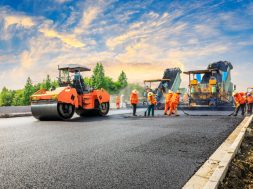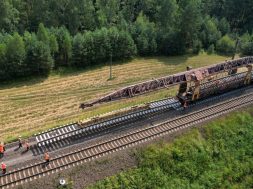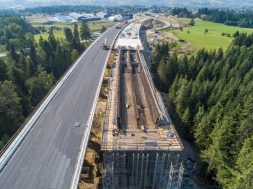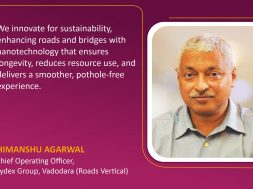The construction sector will be at the center of rapid economic and social change
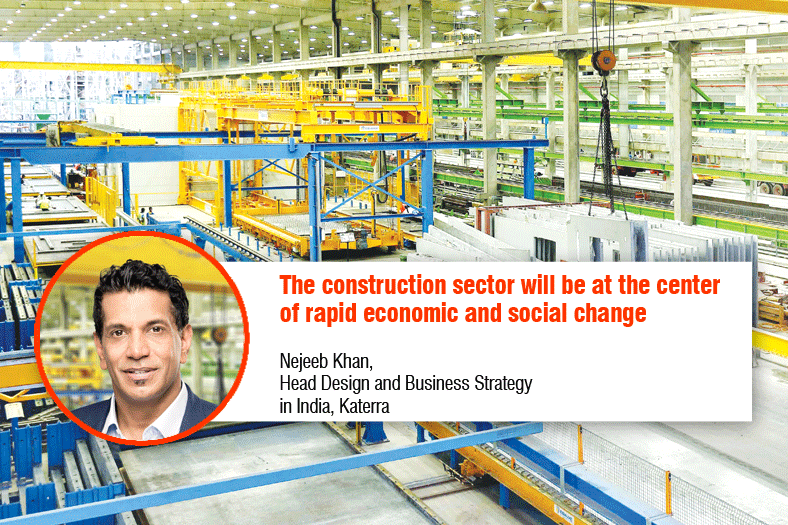
Katerra specialises in putting modern technology to work at all levels of building design and construction to help address some of the most entrenched challenges. Nejeeb Khan, Head Design and Business Strategy in India, Katerra, believes that construction sector will play a crucial role in India’s growth.
How is the construction sector coping with current challenges in Indian economy?
The construction market in India is valued at $1.2 trillion plus and is a significant contributor to the economic and social growth of the nation. However, the sector faces numerous challenges, reducing its efficacy and unhindered growth prospects. The Indian construction industry, traditionally, has been quite slow in adopting new technologies, and this has been one of its biggest challenges. Several surveys show how, over the years, real estate developers have continued to under invest in technology-driven solutions for construction, despite acknowledging the many benefits that these solutions can provide to run and manage their construction projects.
The broader focus of the industry currently is to make construction both sustainable and energy-efficient through advanced technologies. Strict project timelines and increasing costs make it necessary for companies in the construction space to adopt new technologies to stay relevant. A more technology-driven approach to design and construction can be a catalyst for India to become a global leader in the construction space and boost the Indian economy.
What kind of new inventions and techniques can we see in the upcoming year?
Poised to become the world’s third-largest construction sector by 2025, India is witnessing a high uptake of modular techniques. Today, global companies are expanding their presence in India, indicating a significant requirement for offices, co-working spaces, and tech parks across the country, especially in Tier II markets.
Similar to how China witnessed exponential growth in its construction sector over the years by embracing technology-based construction methods, we, at Katerra, believe that India should also take the same route to construct commercial and housing projects. 2020 will witness increased use of technologies such as data-driven design, Design for Manufacturing and Assembly (DfMA), modular construction, offsite manufacturing, intelligent buildings, and construction software, amongst others, changing the way construction projects are being managed. Technologies such as Artificial Intelligence, Virtual Reality, and Augmented Reality will play a significant role in improving worker performance and efficiency.
How is the sector growing vis a vis urban vs rural?
The relocation of the population towards urban shores will boost the demand for residential construction in the coming years. To cater to this demand, real estate developers are now embracing new-age construction technologies for faster completion of projects and better-quality construction.
With the private players rushing in to fill the gaps and taking the leading edge in the construction industry, innovation will bring in some of the most exciting trends in the field of construction technology.
How much can fast-tracking of projects and relaxation in bureaucracy further boost the construction sector?
The real estate sector is grappling with delayed project deliveries, lack of funds, high unsold inventory, and a growing proportion of stalled projects. Unproductive assets in the form of under construction, stuck or delayed projects are estimated at 560,000 homes worth `4.5 trillion ($65 billion) across the top seven Indian cities. However, fast-track construction by using technology and the right planning/implementation of fiscal measures by the government will increase productivity in construction and help stabilise and grow the market
How can the new metro/monorail projects help the sector in the next year?
Metro Rail Systems will improve connectivity across Indian cities, in densely populated areas, it will help reduce population density and open new pockets for development.
Good connectivity reduces travel time from central business districts. It creates an opportunity for developers to create new development in peripheral residential areas that can be better planned and offer new sustainable, and intelligent living solutions.
How can the sector play a positive role in tackling pollution?
Construction has a high impact on the environment in its consumption of energy, both directly and through the materials it uses. Building materials such as asbestos, insulation, paint, and dust have the potential to affect human health and the environment. An excellent way to tackle pollution created through construction sites is through offsite manufacturing, in a factory-controlled set up where minimum waste is generated. Modules and components are assembly-line manufactured and then transported and assembled on site. At Katerra, our process of end-to-end design and offsite construction uses less water and energy creates minimal waste; this, coupled with a robust recycling system, making the whole process more sustainable.
What kind of forecast is the sector predicting for next year in terms of investments?
The Indian construction sector is an important growth driver of India’s economy, contributing around eight per cent to India’s GDP. Major construction activities accounting for growth include power generation projects, highway construction, and railway expansion and export and import cargo. In the past, govt initiatives such as 100 smart cities, world-class highways, and shipping infrastructure, housing, and urban development have attracted significant investments through FDI, private players, and government budgets. As per the economic survey 2017-18, India will require US $4.5 trillion by 2040 for the development of infrastructure. Thus, looking forward to 2020 and beyond, we believe the construction sector will find itself at the center of rapid economic and social change, which is already transforming the built environment.
Cookie Consent
We use cookies to personalize your experience. By continuing to visit this website you agree to our Terms & Conditions, Privacy Policy and Cookie Policy.

